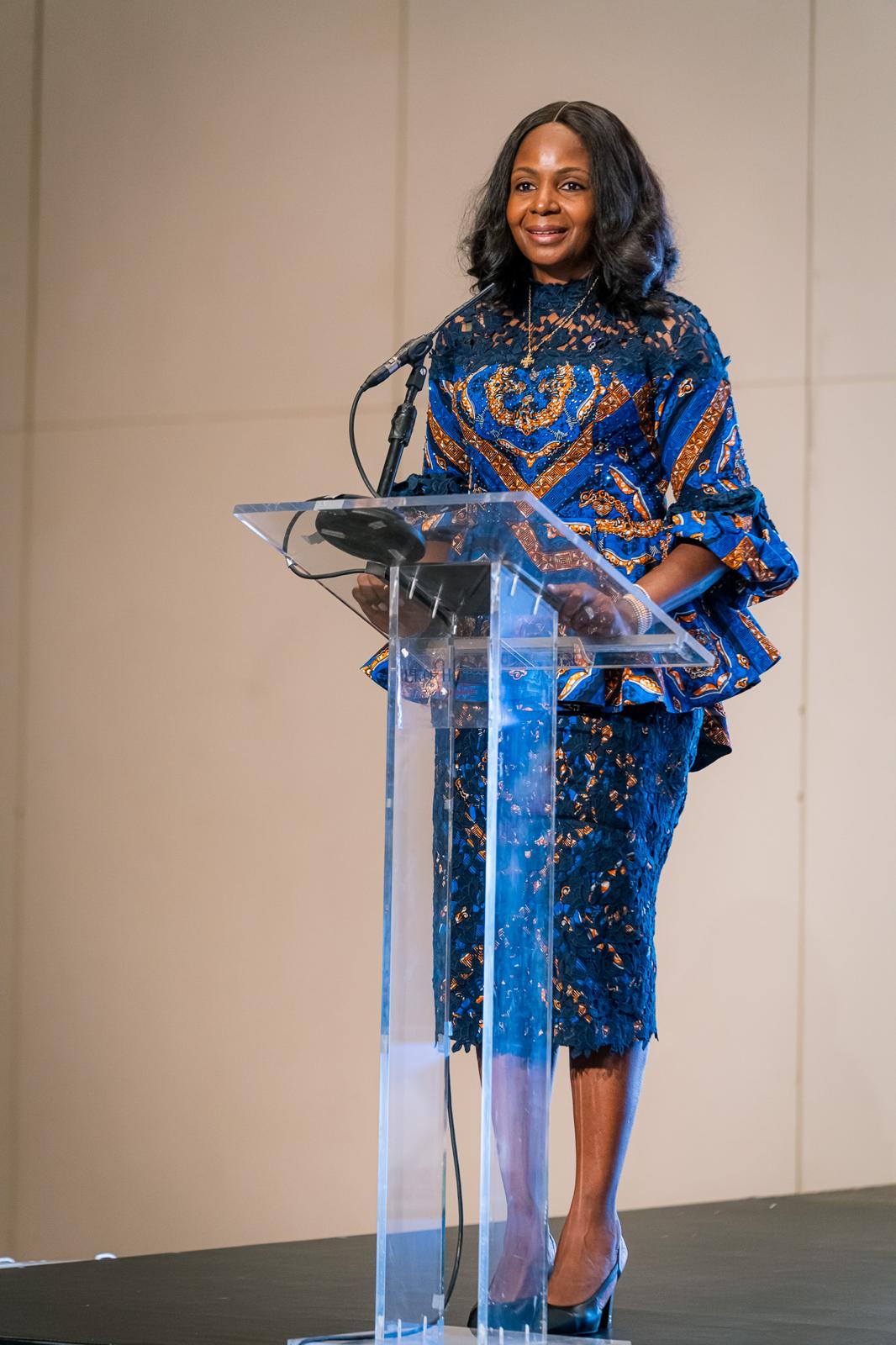
Investing in Nigeria: The Challenges and the Opportunities – An Entrepreneur’s Perspective
على August 26, 2025, the Lagos Chamber of Commerce and Industry (LCCI) hosted the International Business Conference and Expo في Eko Hotel & Suites, Victoria Island, Lagos.
One of the highlights of the event was the Key Private Sector Remarks سلمت بواسطة Dr. Awele V. Elumelu, OFR — Director at Heirs Holdings, Founder of Avon HMO and Avon Medical, and Co-Founder of the Tony Elumelu Foundation.
Speaking on the theme, “Investing in Nigeria: The Challenges and the Opportunities – The Entrepreneur’s Perspective,”Dr. Elumelu shared insights on the realities of doing business in Nigeria, balancing both the hurdles entrepreneurs face and the immense opportunities waiting to be unlocked in Africa’s largest economy. Read her speech below;
▪ Good morning, Your Excellencies, distinguished ladies and gentlemen.
▪ I want to thank the Chamber for this invitation and for creating a platform where the private sector, policymakers, and global partners can come together to talk honestly about the opportunities on our continent.
▪ It is a pleasure to join you at this year’s International Business Conference, and I again thank the Lagos Chamber of Commerce and Industry.
▪ Today, I have been asked to share my perspective on investing in Nigeria — and to shed light on both the challenges and the opportunities.
I stand here not just as a medical doctor, but as an entrepreneur, an investor, and above all, a strong believer in the power of the private sector to transform our economy.
The Nigerian Context
▪ Our country is blessed with abundant natural resources. But equally, we face enormous unmet needs. For investors, unmet needs are not barriers — they are business opportunities waiting to be unlocked.
▪ A few statistics frame this conversation:
− Nigeria is home to over 226 million people, Africa’s most populous nation and the 6th largest population in the world.
− Our median age is just 18 years.
− Over 60% of Nigerians are under the age of 30 — making us the youngest nation in the world.
− By 2025, our population will reach 237.5 million, and by 2050, we are projected to be the third most populous country globally.
▪ What does this mean? It means we are sitting on a goldmine: a massive market, a future workforce, and a generation of innovators waiting for someone to believe in them. But this can also become a challenge if not properly harnessed for human progress.
The Challenges — and the Opportunities:
1. Economic Instability & Youth Empowerment
▪ One of our most pressing challenges is economic instability. Inflation erodes the purchasing power of families. Businesses struggle to survive. Unemployment, especially among youth, is a ticking time bomb. But this is also our greatest opportunity. Our young people are dynamic, ambitious, and entrepreneurial. If we give them the right tools — skills, access to capital, and an enabling environment — they will unleash one of the most vibrant workforces in the world.
▪ That is why my husband and I founded the Tony Elumelu Foundation in 2010, committing $100 million to empower African entrepreneurs.
Today, over 24,000 young entrepreneurs have received seed capital. Collectively, they have created over 1.5 million jobs and generated over $4.2 billion in revenue, pulling over 2 million Africans out of poverty.
▪ This is the power of the private sector — transforming lives, one entrepreneur at a time.
2. Power
▪ Despite our vast gas reserves, millions of Nigerians still lack access to electricity. The economy loses about $26 billion annually to poor power supply.
▪ Businesses spend more on self-generation than on innovation. Without reliable electricity, how do we grow industries? How do we create jobs?
▪ At Heirs Holdings, we invested in power through Transcorp Group, turning around dormant assets. This is Africapitalism in action — private capital aligning profit with purpose, filling gaps where others fail, and creating prosperity that is shared.
3. الرعاىة الصحية
▪ This challenge is personal to me. Nigeria loses over $1.5 billion annually to medical tourism. That is capital flight — but also an opportunity. Why should Nigerians travel abroad for treatment when we can build world-class facilities here? Why export patients and in addition, why lose manpower when we can retain skills and create jobs?
▪ Through Avon Medical and Avon HMO, we chose to act. We are building hospitals and clinics, and providing affordable health insurance — because access is as critical as quality.
▪ This is how entrepreneurs think: see the problem, create the solution.
4. Infrastructure
▪ Nigeria’s infrastructure gap is glaring. Roads, transport, clean water, sanitation — we are lagging behind. Poor infrastructure raises business costs and stifles growth.
▪ But again, this is an opportunity: for investors in logistics, transport, housing, and infrastructure development.
Conclusion & Call to Action
▪ Fellow business leaders, these challenges are real. But so is our capacity to overcome them.
− Africa has had sympathy from the international community. Now, Africa needs more investments.
− Africa has had handouts. Now, Africa needs more partnerships.
− Africa has had outsiders telling our story. Now, Africa needs entrepreneurs writing the future with our own hands, and through our successes
▪ So, my call to everyone is simple:
− To governments: create enabling environments, consistent policies, and encourage the private sector.
− To the private sector: do not wait for perfection — start, build, innovate, invest, and solve.
− To global partners: join us not as patrons, but as peers.
▪ The future of Nigeria — and of Africa — is not being written in New York, London, or Beijing. It is being written here: in Lagos, Nairobi, Accra, Johannesburg.
▪ And it will be written by those who see opportunity where others see obstacles, and who have the courage to act.
▪ That is the spirit that will define Nigeria’s transformation.
That is the legacy we must all commit to.
شكرًا لك.
Dr. AVE
